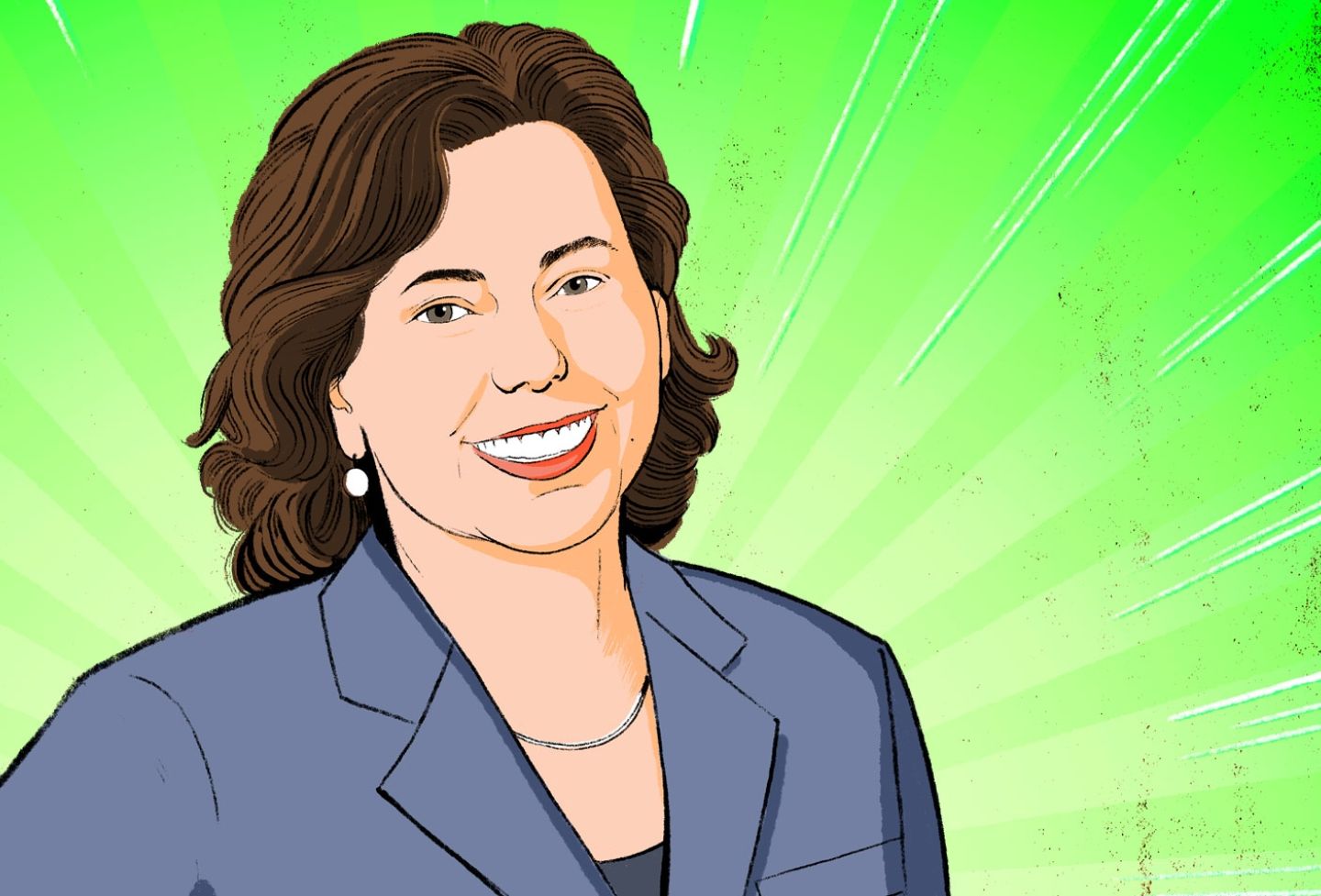Based in Boston, Susan Murley is also a partner in WilmerHale’s corporate practice group and a member of the firm’s Management Committee.
Her work focuses on representing private and public companies in the technology, life sciences and finance sectors, and in initial public offerings, mergers and acquisitions, and corporate governance and general corporate counseling.
What lawyering skills are helpful to be good at what you do?
The lawyering skills that make corporate lawyers good at what they do include the ability to build relationships with people inside companies over a period of time. And there are a couple of things I mean by that. First, this firm, our corporate practice and I work with a number of emerging growth companies — startups, everything. And we represent these companies from the time that it’s two entrepreneurs until they become public companies and members of a Fortune 500 or a Fortune 1000 — much bigger companies.
As a corporate lawyer, we build relationships with our clients throughout the company. So when you’re a junior lawyer, you build relationships with the people who are junior at the company, the “doers” — the people who aren’t the CFO, but they may be the controller, or they may be a lawyer in the legal group. Or it may be someone in HR.
But you build relationships with people who, like you, are not senior. And then you further develop those relationships as they — and you — become more senior, whether it’s at your client’s business, or when they go off to new companies where they achieve further success, where they become members of management over time in their own right. You’ve built those relationships early on and you continue to develop a series of relationships with people, and then with companies, as those people move along.
You’re also deep in the middle of some big decisions with them. When I first became a corporate lawyer, I remember in my first couple of years, a client would call and ask a question. And you’d think and say, “Well, you’re asking me three things. And two of them aren’t really legal issues. You don’t need me to make those decisions. And then the third one is a legal question, and I’m happy to help you with that.”
And then over time, you realize that because you’ve developed a relationship with them, they want your judgment [even on issues that are not legal]. So what makes a lawyer a good corporate lawyer is relationship-building, is judgment that you certainly develop over time, and of course, knowledge of the law and ability to apply it in different situations.
What’s an obstacle you’ve overcome in your career?
In 1986 when I started practicing here, we didn’t have many corporate lawyers who were women. In the first couple of weeks of joining the firm, I was put on a matter, representing a small, early-stage startup company. And the client wanted to replace me. It wasn’t that he didn’t like my work, because I hadn’t done any. He said to the partner with whom I was working, who was a senior-level partner and a leading corporate lawyer, “Don’t you have another young lawyer with whom I could work? It’s nothing personal against Susan. But don’t you have another young lawyer who could work on my matter?” Through those sentences, he was making it clear that he had some new male lawyer in mind. I learned later, because I wasn’t in the room, that the partner said, “I have a whole cadre of young corporate lawyers, of young, male corporate lawyers, who could quite capably do your work. But I’m not going to introduce you to any one of them because the right lawyer for this matter is Susan. And if you don’t want to work with Susan, then I suggest that you find another law firm.”
It was interesting to me at that time that I immediately came up against gender bias — I don’t think we called it that then. It was interesting to me that the partner pushed back so aggressively. We did lose the client. I’m not sure the company ever became anything, but that wasn’t important to the partner.
At the time, I remember thinking, huh, gender bias doesn’t have a home in big law. But certainly, that wasn’t true. At the same time, that experience with that partner gave me confidence, made me think in my early years that gender biases weren’t an issue. And I think notwithstanding the fact that gender bias is a challenge — and has been a challenge in the legal profession for some time — that partner gave me confidence early on, and it probably helped me to not see challenges in my own career.
How did you make the leap from lawyer to leader?
From the time I started here, I took on firm roles. And whether that was being a mentor in the summer program, to being on the hiring committee and running the hiring committee, and then running a practice group and being on committees of all sorts, I was one of those people who was always involved in whatever was going on.
Whenever someone came to me with a project — whatever it was, I took it on. And sometimes it took more time than I expected. Sometimes I was swearing at myself for taking things on. I never aspired to be managing partner. But I do think I became a leader of the firm because I had led so many endeavors over the years.
By leading so many things, I got to know many people in the firm, not just in my own little corporate lawyer world or on my own hall. Through that, I was seen as someone who could lead initiatives, and I was well-known to people. And that is probably how I got to where I am now.
More ‘From Lawyer to Leader’ Stories
- Sarah Baker ’04, president and executive director, We The Action
- Nancy L. Buc ’69, former chief counsel, FDA
- Elissa Cadish ’89, justice, Supreme Court of Nevada
- Terrica Ganzy ’02, deputy director, Southern Center for Human Rights
- Barbara Jeremiah ’77, former executive vice president, ALCOA
- Jennifer McClellan ’97, Virginia state senator
- Catharina Min ’90, partner, Covington & Burling
- Heather Podesta ’97, founder and CEO, Invariant
- Mary Ellen Powers ’80, partner-in-charge, Jones Day Europe



